
We kindly inform you that, as long as the subject affiliation of our 300.000+ articles is in progress, you might get unsufficient or no results on your third level or second level search. In this case, please broaden your search criteria.

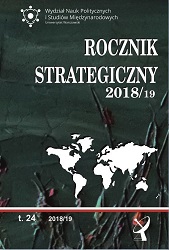
The second year of Donald Trump’s presidency was not a time of breakthroughs orevents of historical significance. However, there have been some signs foreshadowingsignificant changes for the US.After Trump’s two years in office, the economy is still booming, although afteryears of prosperity one could expect slowdown in the nearest future. In domesticpolitics, the President focused on fulfilling his campaign promises and supportingthe Republicans in maintaining the majority in Congress after the midterm elections.The greatest obstacles for accomplishing Trump’s election goals include: growingconflicts between the President and Democrats, problems related to the investigationby the special prosecutor R. Mueller’s commission, instability and rotation at the toppositions in the administration, and the President’s war with the news media.The “America First” approach continued to dominate in the field of foreignpolicy. The President concentrated his efforts on disposing of Obama’s legacy andimplementing initiatives aimed at protecting the interests of the US and of Americancitizens. However, the lack of a clear vision and consistency in foreign policy,disputes within the administration, a stiffer position and tightening of dialogue withforeign partners led to a further drop in confidence and loss of US credibility on theinternational arena.In general, in fulfilling the vision of Making America Great Again, D. Trump usesmethods and means which are far from the standards previously known in Americanpolitics. As a result, the nature of American domestic and foreign policy is changing.It is an open question, however, whether the processes will prove permanent, to whatextent, and, if so, how will it affect the US political system and international order.
More...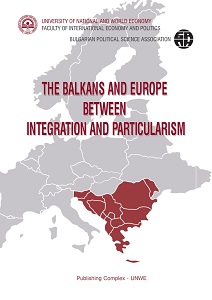
This volume is a collection of papers presented at the International conference The Balkans and Europe between Integration and Particularism: Challenges and Prospects, organized by the Faculty of International Economy and Politics at UNWE andthe Bulgarian Political Science Association and held in Sofia on October 25-26, 2018.The topic might seem trivial, for recently the focus of political and diplomatic attention has yet again shifted back to the troublesome South-Eastern part of Europe.Hence, numerous political and academic events dedicated to the Balkans, and to theWestern Balkans in particular, in the light of the EU integration processes in the region have been organized.
More...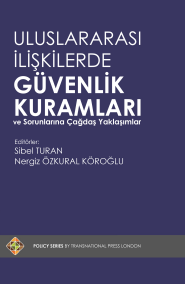
Çatışan taraflar için, hiç şüphe yok ki barışa karar vermek ya da çatışmayı sonlandırıp gerçek bir barış sağlamak son derece zorlu bir süreci de beraberinde getirecektir. Özellikle de yaşanan çatışma sürecinde şiddet dolu uzun yıllar varsa, yüz binlerce kayıp verilmişse ve bunlar toplumun hafızasına kazınmışsa. Böylesi bir çatışmada barışa varmak adına çok güçlü bir motivasyon şarttır çünkü barış ancak ve ancak tarafların bu yönde samimi bir niyet taşımaları sonucu mümkün olabilir. Diplomasi seçeneğine yönelmek, özel olarak müzakere seçeneğini kullanmak tarafların süreç üzerinde kontrol sahibi olduğu bir yöntemdir ve sonuç tarafların niyeti, sahip oldukları güç, mücadele verdikleri amaçlar ve uluslararası toplumun çatışmaya yönelik bakış açısı ile yakından ilgilidir. Barışı sağlamak adına çatışan tarafların basitçe al ver mantığına odaklandığı bir çözüm sürecinin işlemesi yeterli olmayacaktır.
More...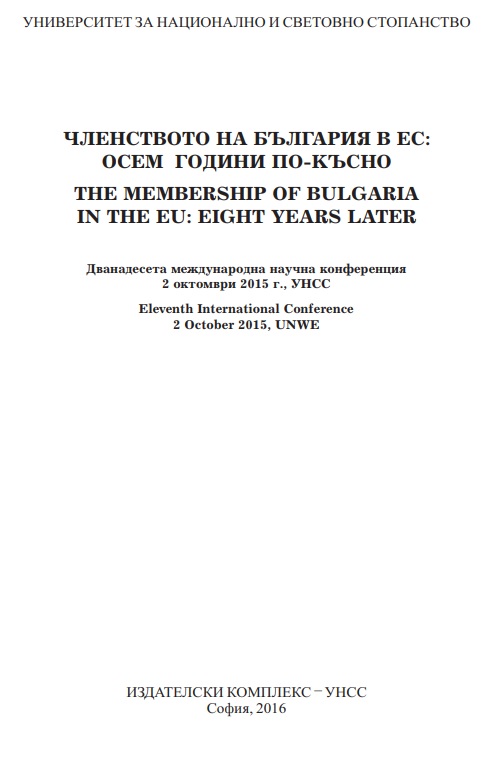
The European Union is facing a number of serious challenges which shall be solved through utilizing its own resources – human, financial and intellectual. At the same time, its institutional structure is increasingly criticized - both externally and internally, by the European and national politicians, and increasingly by the European citizens. The disapproval of the EU is aimed both at the functioning and the activities of specific institutions and at the way in which they interact in the general structure, as well as against the implementation of certain policies. This report presents some weaknesses identified by the three main EU institutions - the European Council, the European Commission and the European Parliament. The second part presents the main critical directions to the EU institutional system - bureaucratic inefficiency, democratic deficiency and inefficiency of the EU policies. Their nature and opportunities for improvement are analyzed.
More...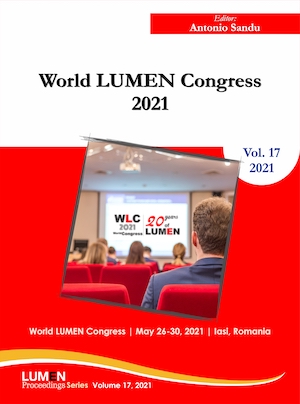
Additional to the three main trends influencing social dialogue at the organizational level - de-centralization, up-scaling, de-institutionalization and representation – the COVID-19 pandemic rules brought a new influence that impacts the Unions, forcing it to adapt its internal communication. This paper is centred upon the way the Unions members in Romania get access to information in the new labour landscape, characterized by the work from home and physical distancing. The research focuses on a collective case-study of three strong Union Federations that developed internal communication with unions’ members that fits the pandemic context. The research focuses on the internal communication repertoire elements used by the Unions. The research method assesses the qualitative information gathered by interviewing key Unions representatives. The main areas of interest are the key topics addressed in the communication with the members, the tools and media mix used, the frequency of the formal communication with the trade unions members, the accountable and the responsible persons with the internal communication, and the management of the feedback from the members, all in the context of what is different vs. 2019. The conclusions are enriched with some recommendations for future development of communication with union members, supporting the social dialog.
More...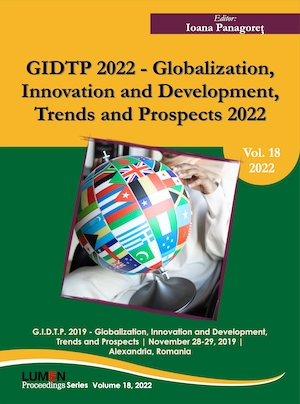
Sustainable development approaches the concept of quality of life in all its complexity, from an economic, social and environmental point of view, promoting the idea of the balance between economic development, social equity, efficient use and conservation of the environment.By its very nature, sustainable development represents the need for responsibility and education for environmental protection, and this aspect is reflected in the evolution of community policy in recent years, a policy marked by the transition from an approach based on constraint and sanction, to a more flexible, based one on incentives. Thus, it is acting in the direction of a voluntary approach, in order to promote this environmental responsibility and to encourage the use of environmental management systems.The environmental policy does not act independently, but reflects the interest of civil society in this direction, manifested by the creation of numerous environmental movements and organizations. Moreover, in some countries the creation and development of "green" political parties has been achieved, with real success in the political arena. However, resistance - or, more properly, the restraint and inertia that manifests itself, should not be forgotten, when environmental objectives seem to limit industrial competitiveness and economic growth; but this aspect only emphasizes once again the need for a concerted approach at European level and the need for an active and integrated environmental policy, capable of responding to the challenges that appear economically.The European environmental policy is based on the principles of precaution, prevention, correction of pollution at source and "polluter pays". The precautionary principle is a risk management tool that can be invoked if there is scientific uncertainty about a possible risk to human health or the environment, arising from a particular action or policy.
More...
Reviews of: 1. Rudiger Wischenbart, Frica lui Canetti, București, Ed. Univers, 1997, în românește de Ana Stanca Tăbărași. 2. Livius Ciocârlie, Cap și pajură, București, Editura Albatros, 1997. 3. Proza feminină austriacă, Iași, Institutul European, 1998. 4. Esterhăzy Peter, Verbele auxiliare ale inimii. Introducere în beletristică, lași, Institutul European, 1997, traducere și note de Anamaria Pop, postfață de Mircea Nedelciu. 5. Bernard Malamud, Butoiașul vrăjit, în românește de Anton Celaru, București, Editura Hasefer, 1998. 6. Witold Gombrowicz, Jurnal, selecție, traducere și note de Olga Zaicik, prefață de Kazimierz Jurczak, București, Editura Univers, 1998. 7. Ladislav Mnacko, Gustul puterii, traducere, prefață și tabel cronologic de Helliana Ianculescu, București, Editura Minerva, 1997. 8. Slavco Almăjan, Metagalaxia minoritară, Novi Sad, Editura Libertatea, Iugoslavia, 1996; Iași, Editura I.N.S.C.R., 1998. 9. Fulvio Tomizza, Materada, traducere de Doina Condrea Derer, Timișoara, Editura Augusta, 1998. 10. Peter Handke, Scurtă scrisoare pentru o lungă despărțire, traducere și postafață de Mariana Lăzărescu, București, Editura Univers, 1998. 11. Methodologische und literarhistorische Studieri zur deutschen Literatur Ostmittel - und Sildosteuropas. Internationales Symposion, Innsbruck 18-19.10.1991 Sudostdeutsches Kulturwerk, Miinchen, 1994. 12. Guy Hermet, Istoria națiunilor și naționalismului în Europa, traducere de Silvia Dram, prefață de Al. Zub, Iași, Institutul European, 1997. 13. Raoul Girardet, Mituri și mitologii politice, Iași, Editura Institutului European, 1997. 14. Allan Janik, Stephen Toulmin, Viena lui Wittgenstein, București, Editura Humanitas, 1998, traducere și note de Mircea Flonta. 15. Aurel C. Popovici, Naționalism sau Democrație, o critică a civilizațiunii moderne, studiu introductiv, îngrijire de ediție, note de Constantin Schifirneț, București, Editura Albatros, 1997. 16. Aurel C. Popovici, Stat și Națiune, Statele-Unite ale Austriei Mari, Studii politice în vederea rezolvării problemei naționale și a crizelor constituționale din Austro-Ungaria, traducere din limba germană de Petre Pandrea, studiu introductiv, note și îngrijire de ediție Constantin Schifirneț, București, Editura Albatros, 1997. 17. Doru Radosav, Sentimentul religios la români, Cluj-Napoca, Editura Dacia, 1997.
More...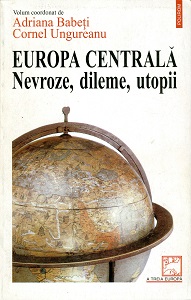
„Pluralitatea” spațiului habsburgic1, pe care Moritz Csaky a definit-o ținînd seama atît de realitățile interne (etnice, lingvistice, culturale și politice) ale Imperiului, cît și de cele rezultate din îmbinarea pe acest teritoriu a unor tipuri extrem de diferite de civilizație europeană, a evoluat pe parcursul unei istorii proprii spre statutul de calitate „fizionomică” fundamentală a regiunii, calitate din care rezultă, paradoxal, tocmai marca sa unitară. Constituirea treptată, deși dificilă, a unui spațiu economic comun - în ciuda disparităților adînci dintre provinciile dezvoltate și subdezvoltate, ca și a relativei întîrzieri în procesul expansiunii capitaliste, cauzate, în comparație cu Anglia, Franța sau Prusia/ Germania, de o tipică imobilitate socio-politică - a facilitat în Europa Centrală un permanent schimb de mărfuri, oameni și idei, pe baza căruia s-a constituit aici cadrul diferențial al unui cuprinzător „spațiu social”. Trăsătura sa cea mai pregnantă ar consta în aceea că, în timp ce în statele naționale moderne, unde conceptul de „națiune” a căpătat concomitent și un sens uniformizant din punct de vedere social, societatea se fragmentează pe „verticală”, în categorii (clase) cu interese sociale și politice divergente, (precum în Germania de după 1871), în cazul nostru persistă un fragmentarism „orizontal”, de sorginte premodernă; pe fondul unui echilibru instabil dintre centralismul programatic al iosefinismului și presiunea particularismelor provinciale sau naționale, acesta se manifestă, fie în chip individual, fie la nivel colectiv, prin coexistența pluralistă a mai multor identități (sau loialități) și sub-identități.
More...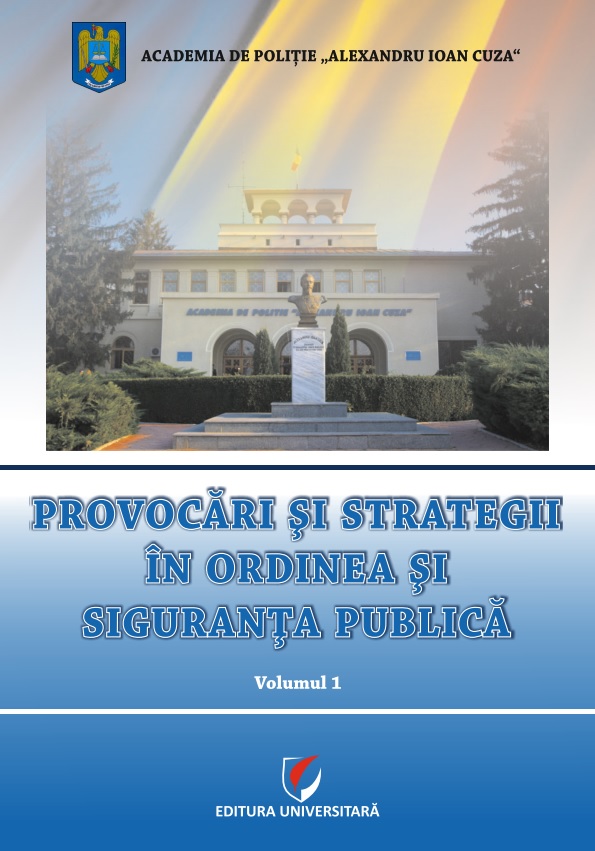
As an EU member, Romania must applies the rules of the Union in all areas covered by it, including home affairs, in order to provide Romanian citizens and European citizens with the assurance of fundamental rights and freedoms. This paper aims to address Romania’s obligation to apply EU law in the police field from two perspectives: The advantages of a uniform framework for the application of regulations on this subject, but also the challenges resulting from the need to include them at national level. As a novelty element and with the conviction that the academic environment is a good one for debates, I intend to integrate in the proposed paper information obtained from the dialog conducted through artificial intelligence in the form of ChatGPT, As a result of the controversies raised in the academic world and to identify whether artificial intelligence of this type can formulate pertinent arguments regarding the application of EU home affairs legislation in Romania.
More...
Through the system of lessons identified, those features can be identified that have the potential to make the work of security organisations more effective. In this context, a viable lessons learned system has been adapted and implemented at NATO level and has become a fundamental strategic component of the management system responsible for organisational development. The implementation of the Lessons Learned System at the level of the Ministry of Internal Affairs arose also from the need to have a mechanism that would allow the transfer of knowledge in an efficient and rapid way to all staff, against the background of a particular staff dynamic, the model being mainly the one adopted at NATO level that has proven successful over time. The lessons learnt system at Ministry of Internal Affairs level has been institutionally adapted from the one developed at NATO level, which was previously taken over also by the Ministry of National Defence. Lessons learned implemented on the basis of the NATO model are of value through their use in: the planning of actions carried out by military organisations and those responsible for maintaining, ensuring and restoring public order; ensuring interoperability between the structures of the Ministry of Internal Affairs and the Ministry of National Defence; the development of operational, procedural and technical standards; the field of logistical procurement; the field of education.
More...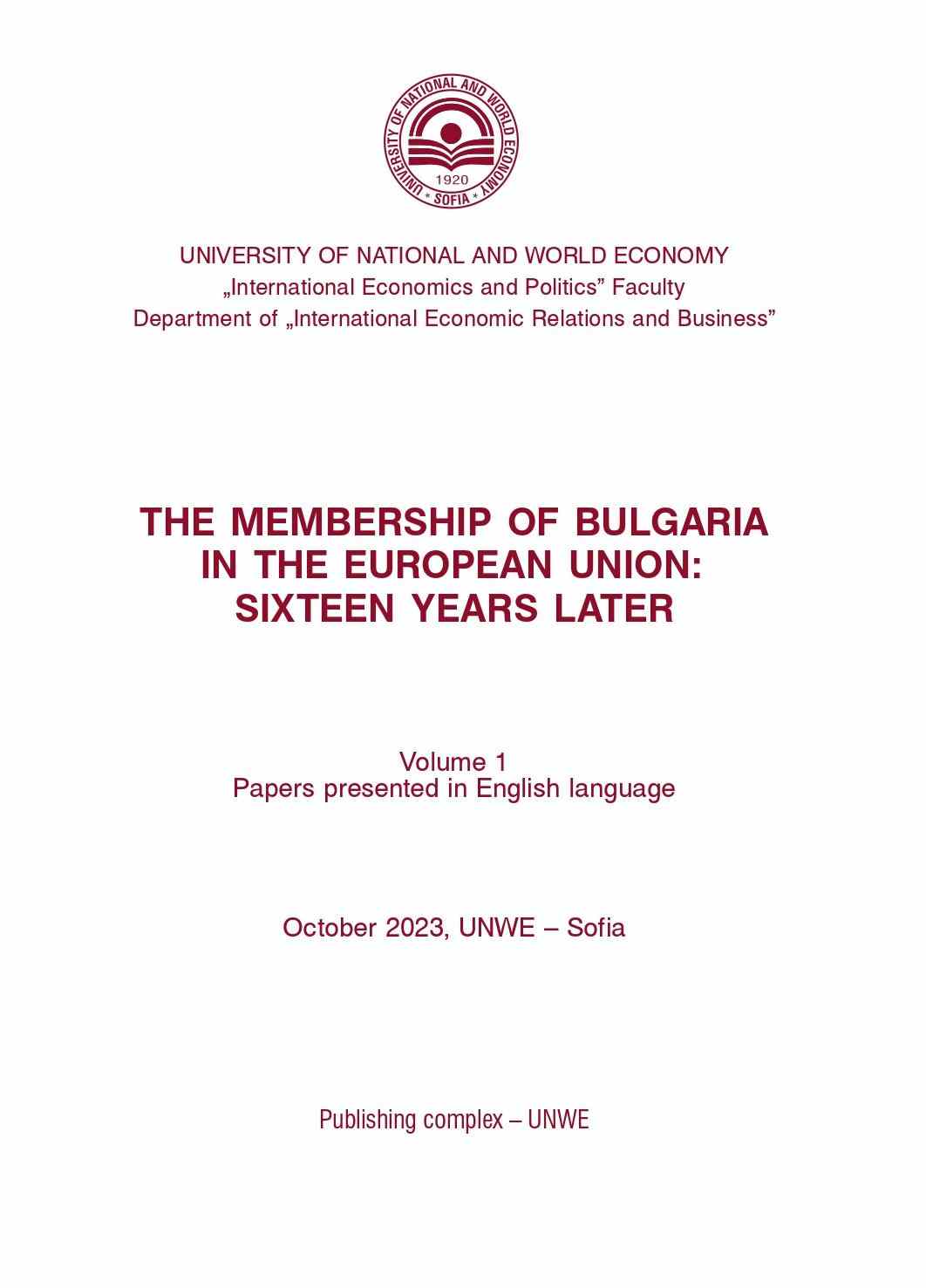
The report "The rapidly growing Euroscepticism - a result of the internal political processes in the member states of the European Union" presents the realities and challenges facing the European Union in recent years, namely one of them is the growing Euroscepticism towards the project for a united Europe. The European values that have been fundamental to the construction of the European project, uniting for more than several decades free, democratic and peace-loving countries, are being tested given the desire of more and more EU citizens to strengthen the influence of the national states represented in the European structures, and the institutions of the Union to have less and less influence over the decisions in the legislative process of the individual member states, giving the prerogative of national law over European laws. Euroscepticism even takes an extreme form with some European parties represented in the political system of the countries, agitating for their departure and disintegration of the Community. The scientific report also presents and analyzes in detail the reasons and factors influencing public opinion in the EU, which led to the alienation of people from the political system of the Union, strengthening the desire for national separatism from the European institutional structures. Euroscepticism is becoming increasingly influential, both in the member states that laid the foundation for the creation of the EU after the end of the Second World War, and in the more recently joined former totalitarian states that have been democracies since 1989, a period associated with the end of the Cold War.
More...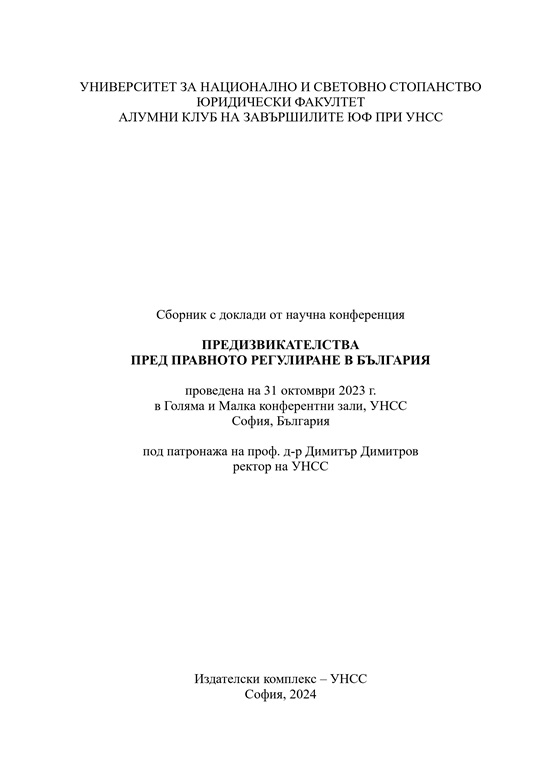
The draft amendment to the Constitution of the Republic of Bulgaria from 2023 contains numerous proposals that are within the competence of the Grand National Assembly. This conclusion is based on a comparison of the content of proposed changes with the established practice of the Constitutional Court of the Republic of Bulgaria regarding the "form of government" in the sense of Art. 158, item 3 of the operation of the Constitution. It is indisputable that the discussion needs to be changed in the Basic Law and if it is to be entirely political in nature. But in view of the basic constitutional principles - rule of law, people's sovereignty, separation of powers and independence from the judiciary, proclaimed in the Basic Law, the political decisions of this discussion should undoubtedly be in line with them.
More...
It is a fundamental rule in the constitution of a democratic state to contain provisions related to changes to the basic law. Such was the understanding of the creators of the Constitution of the Republic of Bulgaria from 1991, who provided for such a legal regulation. It is contained in Chapter Nine of our basic law, entitled "Amendment and addition to the Constitution. Adoption of a new Constitution" - Art. 153 to Art. 163. Challenges in legal regulation related to changes in the Constitution are outlined according to material criteria and are fastened with special procedural guarantees in our basic law. In the exposition below, attention will be paid to some main points contained in the constitutional legal framework for revision of the Constitution by the National Assembly. The very fact that this activity is different from the usual daily legislative function of the parliament shows that the National Assembly is faced with the challenge of carrying out the changes in the basic law, considering all the features and specifics laid down in the constitutional law.
More...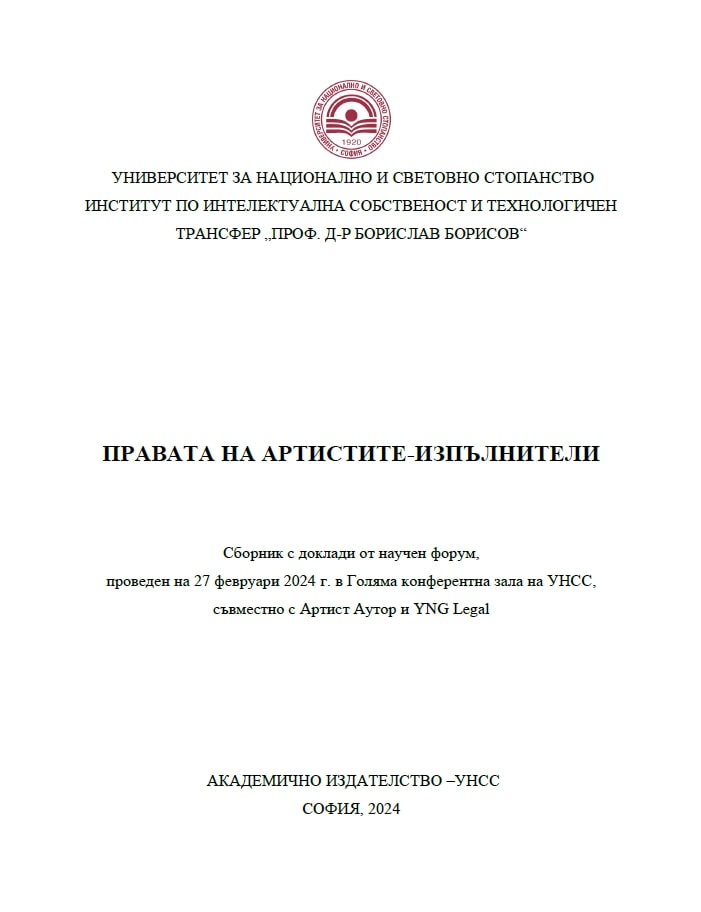
In the present work, the reader's attention is again directed to the distinction between a state body and its administration and, in particular, the Minister of Culture from the Ministry of Culture. The administrations under the Minister of Culture and the administration of the Ministry itself are also examined, paying attention to the general and special administration.
More...
Photographers and artists are creators, representatives of two creative industries that create products subject of artistic property. The first are the owners of copyrights of the photographic works, and the second are the owners of the related rights of their own performances. The two categories of artists interact and work together. What intellectual property rights arise in the process of photographing of a stage performance, who owns these rights and how are they managed? What contracts and agreements are concluded between them and are the photographers and the artists equal partners?
More...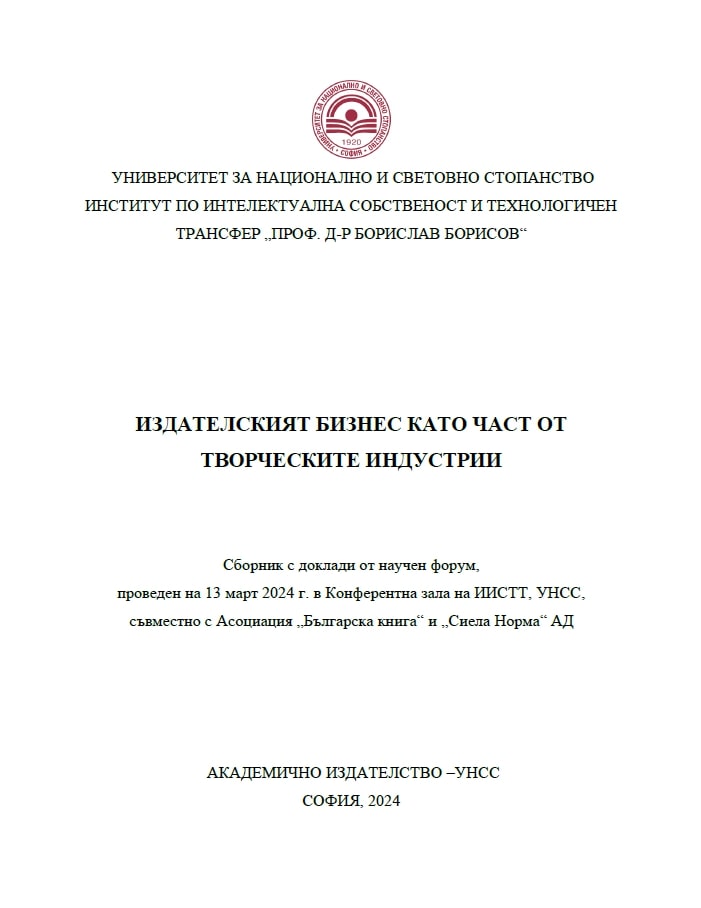
The subject of the publication is intellectual property in periodical printing as a segment of the publishing business. Book publishing is often presented as the entire publishing activity. The sector of periodicals is omitted, which forms a huge share of the publishing output and the most circulated one, covering the largest number of authors. The focus of the research is copyright protection in the publishing of newspapers and magazines in Bulgaria and the EU. Media diversity and freedom of speech are core values in the Charter of Rights of the European Union. Publishers of periodicals in the EU are facing new realities - copyrights are violated by Internet giants, platforms, news aggregators, etc., which also applies to the Bulgarian media. The long-term operation and prosperity of the diverse and economically successful magazine and newspaper publishing industry depends on ensuring effective protection of intellectual property. It is important to respect the publisher's right to create an enabling environment for newspapers and magazines, their websites and apps, especially for journalists, photographers, designers, etc., to continue working with high professional standards to provide news, audience analytics and copyright information.
More...
Publishing and the photography business are two creative industries that have crosspoints in their work together and in the management of intellectual property rights of their products. What are these intersections, what problems have the publishers and the photographers, and how can they be solved? What are the latest law changes and which of them affect the two creative industries? What would improve the business environment and copyright protection?
More...
This paper examines the legal instruments available to creditors for claims against a company with variable capital and more specifically the guarantee function of capital and the possibility of engaging in the personal liability of board members and controlling partners. A conclusion is made about the essence of penetrating liability as a special type of tortious liability, expressly provided for in the law to override the general rule that the company is independently liable for its obligations only with its own property.
More...
The report presents and analyzes the problem of the growing role and importance of constitutional justice in Bulgaria in the conditions of political crisis in recent years. The thesis is advocated that in conditions of political crisis, democratic institutions and parliamentary parties are more often inclined to violate the constitution or to use it excessively as a tool for institutional opposition in the political process. As a result, the Constitutional Court becomes a participant in the resolution of political and institutional disputes and conflicts. Cases from constitutional jurisprudence are analyzed, through which challenges and problems facing constitutional justice are highlighted. A political and legal approach is used in the analysis of the studied process.
More...